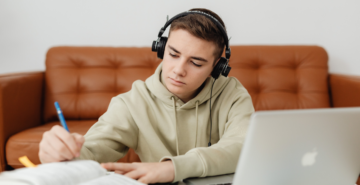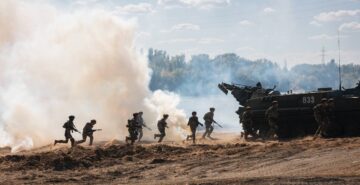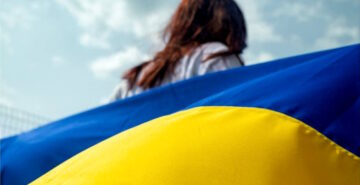

Preparing Youth for Service in the Russian Armed Forces: Militarisation of Children in Occupied Crimea through DOSAAF
After the occupation of Crimea in 2014, Russia immediately began the deliberate militarisation of children and youth in the temporarily occupied territory of Ukraine (TOT). This influence continues to this day and has only intensified since 2022. A broad network of occupation authorities, youth movements, and organisations are involved in this process, overseeing and coordinating ideological and military-patriotic education. One such structure is the “Voluntary Society for Assistance to the Army, Aviation, and Navy of Russia” (commonly known by its Russian abbreviation, DOSAAF).
The full name of the organisation in the TOT of the Autonomous Republic of Crimea is: Regional branch of the All-Russian public-state organisation “Voluntary Society for Assistance to the Army, Aviation, and Navy of Russia” of the Republic of Crimea.
In the TOT of the Autonomous Republic of Crimea, the local branch of this organisation is headed by Andrey Aleksandrovich Popov, who is an active representative of the occupation authorities responsible for military-patriotic education of young people and preparing them for service in the Russian Armed Forces.
DOSAAF in occupied Crimea conducts training courses for pupils, holds military field exercises, organises military training competitions and games, and also forms a mobilisation reserve from Crimean teenagers. The involvement of children and young people in militaristic activities in the TOT of the Autonomous Republic of Crimea is framed as “patriotic education” and forms part of a deliberate strategy to train future soldiers for the Russian army.
One of the areas that DOSAAF has recently been actively developing in the TOT of the Autonomous Republic of Crimea is training in the operation of unmanned aerial vehicles (UAVs). This article will provide more detail about this and other activities of the organisation, its role in the militarisation of children and young people, as well as its leadership.
WHAT IS DOSAAF OF RUSSIA?
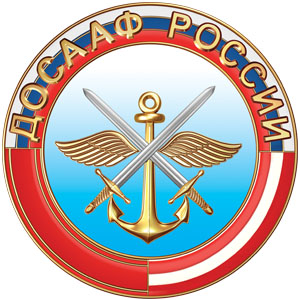

The organisation named the “Voluntary Society for Assistance to the Army, Aviation, and Navy of Russia” (Russian: DOSAAF – “Dobrovolnoye obshchestvo sodeystviya armii, aviatsii i flotu Rossii”) was first established in the USSR in 1951. It focused on preparing military personnel, promoting military-patriotic education, and providing training in technical professions linked to the national economy with military applications. At that time, the society comprised 240,000 primary organisations and around 11.5 million members. DOSAAF became the successor to earlier structures, such as OSOAVIAKHIM (the Society for the Promotion of Defence, Aviation and Chemical Construction), which had existed since the 1920s. According to the organisation’s website, the year 1927 is indicated as the founding year of DOSAAF, and it is noted that the society will mark its 98th anniversary in 2025.
After the collapse of the USSR, the successor organisation in Russia became ROSTO (the Russian Defence Sports and Technical Organisation), which, following a reorganisation in 2009, restored its former name – DOSAAF. Today, it is an all-Russian public-state structure with over 266,400 members (as of 2023) and is engaged in the following activities:
| – organising military-patriotic education (including events aimed at promoting historical and cultural heritage, military-heroic traditions, love for the homeland, and readiness to defend the country) – assisting state authorities in: 1) implementing youth policy 2) carrying out mobilisation training activities in the interests of the defence of the Russian Federation – preparing citizens for military service and teaching the fundamentals of defence; – training military occupational specialists for the Armed Forces of the Russian Federation and other law enforcement and security agencies; – organising activities to maintain military skills among the civilian population; – implementing events under the All-Russian physical culture and sports programme “Ready for Labour and Defence” and other related initiatives. |
From 2020 to 2023, the society took part in organising and conducting 295 defence-sports and recreational camps, involving over 41,000 children each year.
Funding of DOSAAF
The budget of DOSAAF has a mixed structure, which can broadly be divided into two main sources of funding:
State funding (federal, regional, and local budgets)
- subsidies for the implementation of specific state functions and the provision of services for state needs
- funds received for fulfilling state orders and participating in targeted programmes
- property contributions from the Russian Federation for the implementation of long-term programmes
Own funding:
- entrance and membership fees from individuals and legal entities;
- voluntary in-kind contributions and donations;
- income from educational, economic, and entrepreneurial activities, as well as from civil-law agreements;
- payments received for services provided to legal entities and individuals;
- proceeds from organising lectures, exhibitions, festivals, auctions, sports and other mass events, lotteries (in accordance with DOSAAF’s charter), and other sources.
In 2024, the organisation reported that its revenues in 2023 had increased by 9.16% compared to 2019. At the same time, subsidies from the federal budget of the Russian Federation decreased by 9.12%, indicating that in 2023, DOSAAF’s funding was largely supported by its own sources.
Despite this, the organisation continues to receive substantial state support. In particular, federal subsidies in 2025 amount to 1,447.9 million roubles, and this represents only part of the overall state funding. DOSAAF branches in the regions also receive funds from regional and local budgets, which highlights its significant role in the Russian Federation’s militarisation policy.
Putin’s Decree: The Beginning of DOSAAF’s Relaunch
In 2024, the issue of reforming DOSAAF was under discussion: in August, the Russian Ministry of Defence, together with DOSAAF, prepared a draft law regulating the organisation’s activities. This initiative was prompted by the “geopolitical situation” and the “need to strengthen the state’s role in the organisation’s operations”. The draft law, in particular, envisaged direct funding from the federal budget (not through the allocation of subsidies) and an expansion of military specialisations. Sure! Here’s the revised sentence:However, at the time of drafting this article, the law had not yet been adopted.
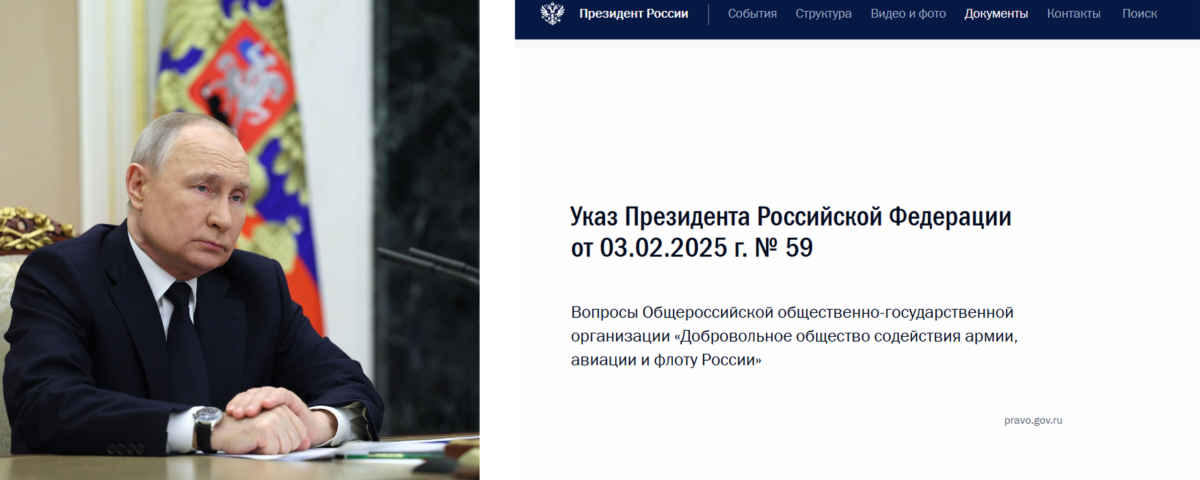

On Issues of the All-Russian Public-State Organisation “Voluntary Society for Assistance to the Army, Aviation, and Navy of Russia”
Nevertheless, changes did take place: on 3 February 2025, V. Putin signed a decree entitled “On Issues of the All-Russian Public-State Organisation ‘Voluntary Society for Assistance to the Army, Aviation, and Navy of Russia’”. The purpose of the decree is to “consolidate the efforts of the state and society aimed at creating conditions for improving the effectiveness of citizens’ preparation for military service, developing military-patriotic education, fostering patriotism, and enhancing the prestige of military service”. According to this act, the coordination of DOSAAF’s activities on behalf of the state is carried out by the Ministry of Defence of the Russian Federation. The minimum age for joining the organisation was lowered from 18 to 14 years, which, in our view, is part of a broader strategy of early militarisation of young people, including in the TOT. In addition, the composition of the supervisory board was formalised, comprising representatives from the Presidential Administration, the Ministry of Defence, the Ministry of Education, the Ministry of Sport, the Ministry of Finance, the Ministry of Economic Development, the Federal Agency for State Property Management, and other federal executive bodies responsible for military service matters. The board holds exclusive authority to oversee the expenditure of funds allocated to DOSAAF from the federal budget and other sources.
According to the decree, the Ministry of Defence of the Russian Federation and other federal bodies that provide for military service are instructed to:
- provide support to DOSAAF in the military-patriotic education of citizens, including children and young people;
- involve the organisation in activities during mobilisation and wartime, in the preparation of conscripts and reservists, and in conducting exercises and training related to mobilisation deployment and the implementation of mobilisation plans.
According to the Deputy Minister of Defence of the Russian Federation, Yunus-Bek Yevkurov, in the context of the so-called “special military operation”, DOSAAF is to take a leading role in raising the level and quality of citizens’ preparation for military service.
Changes within the Organisation: New Head and Plans for the Future
In March 2025, the 8th Extraordinary Congress of DOSAAF took place, during which a new head of the organisation was elected. The position was assumed by Denis Dobryakov, former head of the Rybinsk urban district and acting head of DOSAAF. The newly appointed leader stated that the organisation now aims to develop a strategic plan through to 2030. The main changes will concern the military occupational specialities taught within the structure: their number is expected to double, with new specialities being related to unmanned aviation, computer technologies, robotics, and other modern fields.
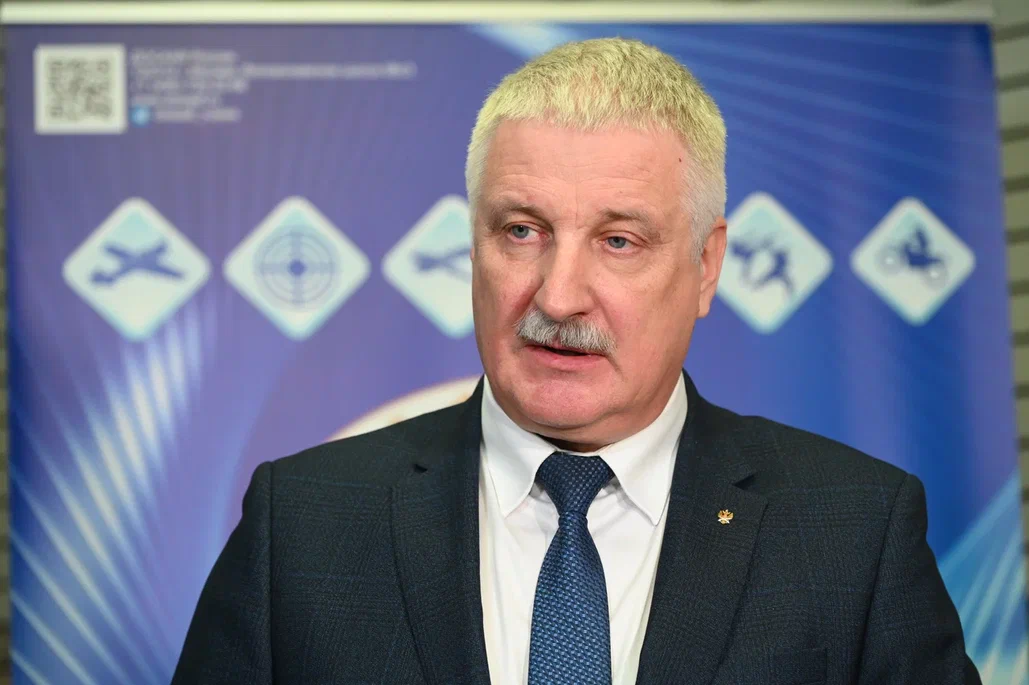

According to Dobryakov, additional representatives of the Russian Ministry of Defence will be introduced into the structure to oversee the quality of training as well as the organisation’s property assets.
As we can see, Putin’s February decree on the “relaunch” of DOSAAF is directly linked to the war against Ukraine. Military training has always been part of the organisation’s activity, but this process has now intensified significantly, with the organisation’s work effectively focused on preparing personnel to take part in the so-called “special military operation”. The lowering of the entry age to 14, which enables the involvement of teenagers in acquiring military specialisations and undergoing patriotic education from an early age, the transfer of DOSAAF under the control of the Ministry of Defence, and the expansion of military specialisations all confirm a deliberate effort to form a mobilisation reserve, including through the recruitment of children and young people in TOT. These changes are positioning DOSAAF as a key tool for involving young people in the war.
Crimean branch of DOSAAF
DOSAAF’s charter states that the organisation’s activities extend across the entire territory of Russia and are carried out through regional (interregional), local, and primary branches, as well as through its offices and representative units. As early as September 2014, the year of the occupation of the Autonomous Republic of Crimea, DOSAAF registered its branch there and subsequently began actively expanding its military-patriotic programmes for local youth.
In 2017, Andrey Popov took over as head of the branch, a position he still holds. During his leadership, the training vehicle fleet was updated, and an annual programme for training cadets in military occupational specialisations was established to fulfil the state order from the Russian Ministry of Defence.
According to the organisation’s website, 24 local branches operate in the TOT of the Autonomous Republic of Crimea, bringing together 136 primary units and over 2,000 members. The structure also includes 11 educational institutions and more than 30 military-patriotic clubs and associations. The Crimean branch of DOSAAF provides training and retraining services for military specialisations within the Russian Armed Forces. As head of the organisation, Andrey Popov holds “talks” with young people studying for military specialisations, reminding them “of the importance of the path they have chosen – the path of a defender of the motherland” (referring to the Russian Federation).
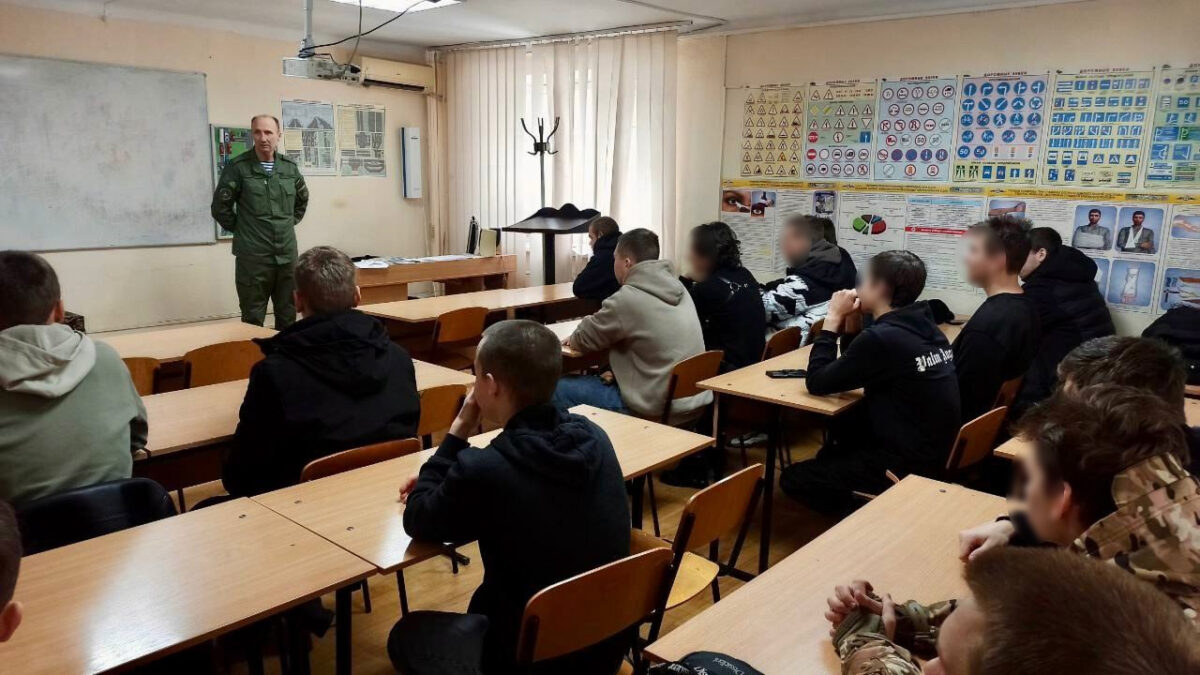

In 2019, a supervisory board was established for the Crimean branch, chaired by Sergey Aksyonov, the head of the occupation authorities in Crimea. Following his decision, the organisation receives a subsidy from the budget of the so-called “Republic of Crimea”.
Overall, the Crimean branch of DOSAAF carries out the same tasks as the organisation at the federal level, with the distinction that its authority is limited to the territory of occupied Crimea.
WHO IS ANDREY POPOV?
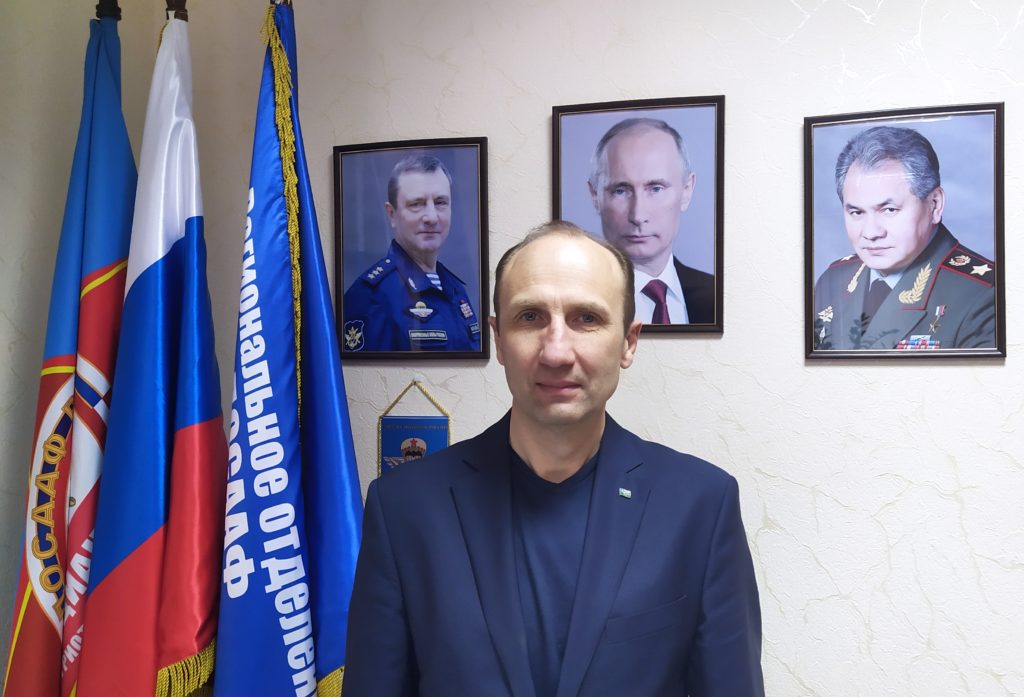

Andrey Aleksandrovich Popov was born on 25 March 1970 in the village of Voinka, Autonomous Republic of Crimea, Ukraine (at the time – the Ukrainian SSR).
He began his working career in 1988 as an electric and gas welder at the “KPO Khimprom” enterprise. After serving for two years in the airborne troops of the Soviet Armed Forces, he returned to civilian life and continued working as a welder in various cooperatives. In 1992, he became deputy director of the private small enterprise “Skif”, and shortly afterwards took over as its head. From 1995 to 2017, he held managerial positions in several companies, including BudInvestHolding LLC, P.F.K.-Dim CJSC, and P.F.K.-Dim LLC. In 2016–2017, he served as a project manager in the project directorate of DOSAAF of Russia in the TOT of the Autonomous Republic of Crimea and Sevastopol.
Popov supported the Russian occupation of Crimea and from the very beginning collaborated with Russian military forces. He participated in the blockade and disarmament of Ukrainian troops on the territory of the Autonomous Republic of Crimea, organised so-called “self-defence squads” in Krasnoperekopsk and Simferopol, and worked with the command of the Russian Airborne Forces. This activity was noticed by Russian structures, which later influenced his appointment to leadership positions in the Crimean branch of DOSAAF and other “veteran” organisations (including the “Crimean Union of Veterans of Airborne Troops and Special Forces Units ‘Southern Border’“), which effectively serve as platforms for militarisation. For his “long and fruitful cooperation in military-patriotic education of young people”, he received a certificate of appriciation from the so-called “Main Directorate of the Investigative Committee of the Russian Federation for the ‘Republic of Crimea’“, which demonstrates his active cooperation with the occupation authorities in this area.
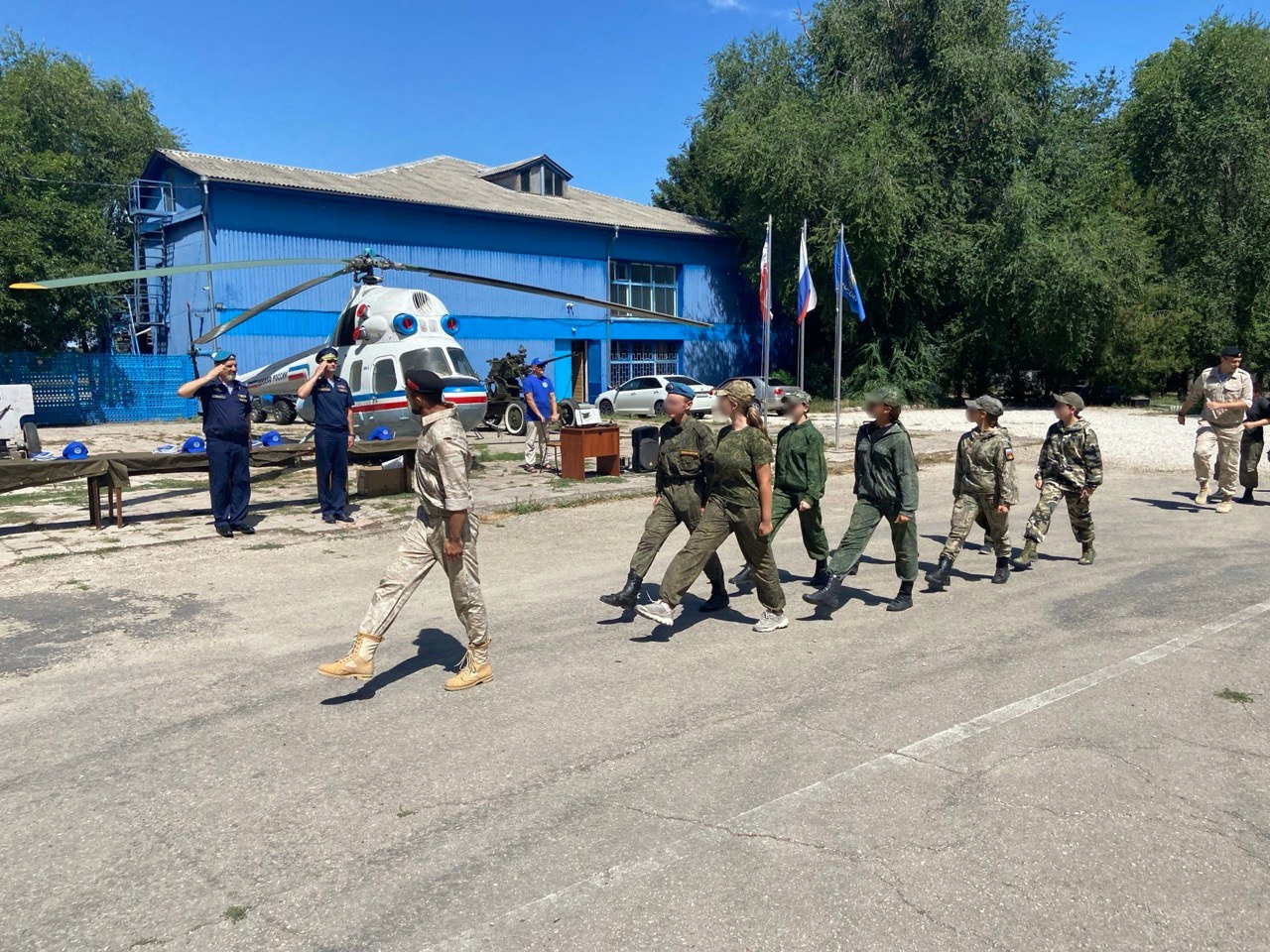

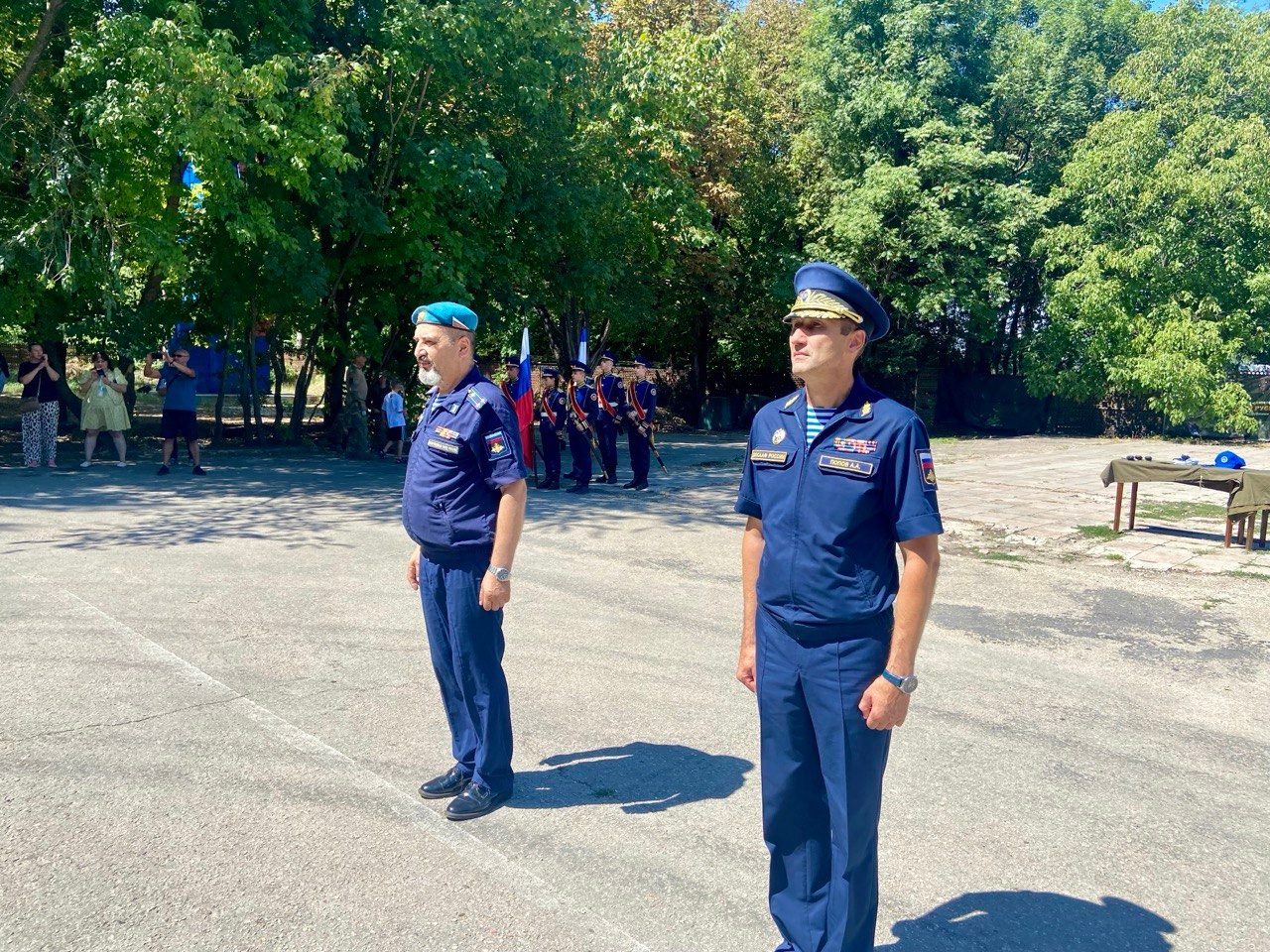

As mentioned above, since 2017, Popov has headed the Crimean branch of DOSAAF, and since 2023, he has also held the position of director of the “Simferopol United Technical School of the Crimean Regional Public Organisation DOSAAF”.
In December 2024, it was reported that a criminal case had been opened against Andrey Popov. He was informed of the charges under Part 1 of Article 438 of the Criminal Code of Ukraine (violation of the laws and customs of war) and Part 3 of Article 436-2 of the Criminal Code of Ukraine (justification, recognition of the legitimacy, or denial of the Russian Federation’s armed aggression against Ukraine, using media). Specifically, the Prosecutor’s Office of the Autonomous Republic of Crimea and the city of Sevastopol stated that the suspect “directly organises and carries out propaganda for service in the armed forces and other military formations of the Russian Federation among the residents of Crimea, including children and adolescents”.
CRIMEAN BRANCH OF DOSAAF: MILITARISATION OF CHILDREN AND YOUTH
The military-patriotic education programmes of the Crimean branch of DOSAAF, led by Andriy Popov, involve various activities designed to instil loyalty to Russia in children and young people and prepare them for service in the Russian Armed Forces. These include:
- Five-day field training camps for pre-conscription youth, organised in cooperation with Russian military forces. In the summer of 2024, these field camps were held under thematic programmes: “Marine Corps – Where We Are, There Is Victory!”, dedicated to the Russian Navy; and “No One But Us!”, marking the Day of the Russian Airborne Forces. Children were taught basic military training skills, such as disassembling and ssembling rifles, shooting, drill training, and other forms of military practice.
- sports festivals “Spartakiads” for pre-conscription youth, during which children undergo military training, including shooting, drill training, and practical skills in disassembling and assembling an AK.
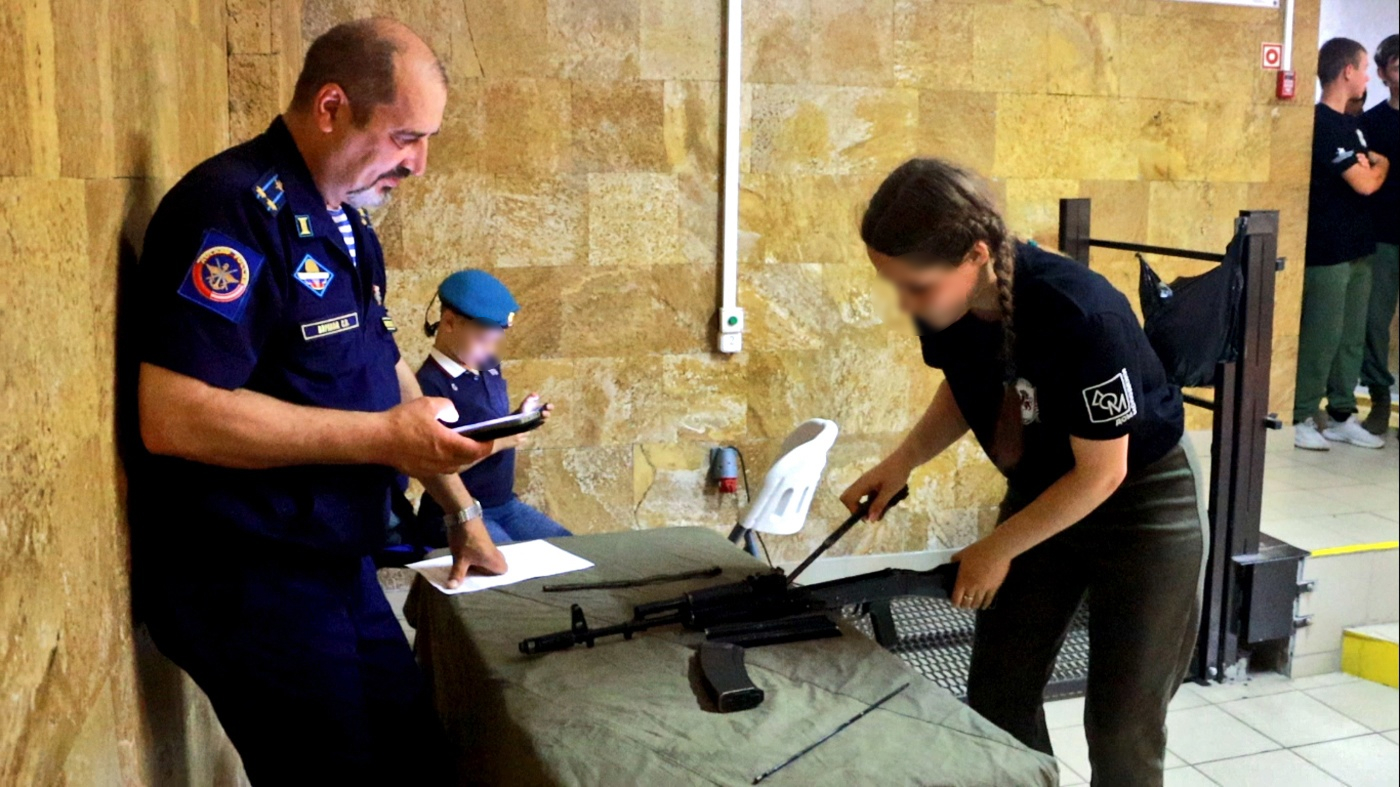

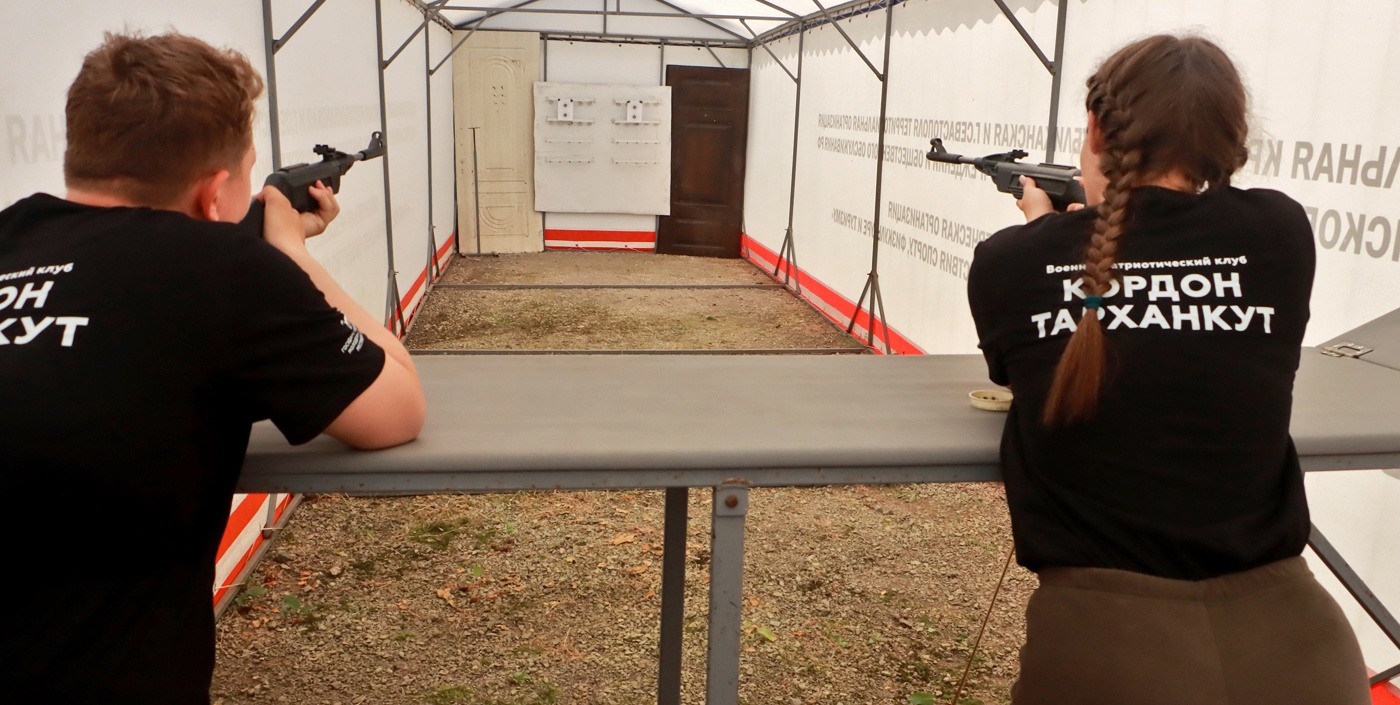

- implementation of the “No Statute of Limitations” programme at the children’s camp “Artek” (TOT of the Autonomous Republic of Crimea), where a series of locations were set up, including: a model aircraft exhibition; an interactive shooting range (pistols, rifles with laser targets); shooting with an air rifle; introductory military firearms training workshops, and more.
- Participation in organising regional stages of military-patriotic games, such as “Zarnitsa 2.0” (“Summer Lightning 2.0”), where children from the TOT of the Autonomous Republic of Crimea demonstrate their skills in firearms training, engineering, and countering unmanned aerial vehicles.
This is just a part of the militaristic activities organised by the Crimean branch of DOSAAF for children and youth.
Training in unmanned aerial vehicle (UAV) operation
In addition to its military-patriotic activities, DOSAAF in Crimea has been actively running training programmes for UAV operators. In 2024, DOSAAF in the TOT of the Autonomous Republic of Crimea graduated its first cohort of UAV operators and continues to do so. Specifically, it trains serving military personnel to become “Specialists in the operation of unmanned aerial systems, including one or more unmanned aerial vehicles with a maximum take-off weight of 30 kg or less”.
Since December 2024, the organisation has begun running training workshops for schoolchildren in occupied Crimea (Simferopol): for four days, children are taught to operate unmanned aerial vehicles. The programme includes not only simulator training but also hands-on experience with FPV drones. It is worth noting that Russia actively uses this type of drone in its war against Ukraine.
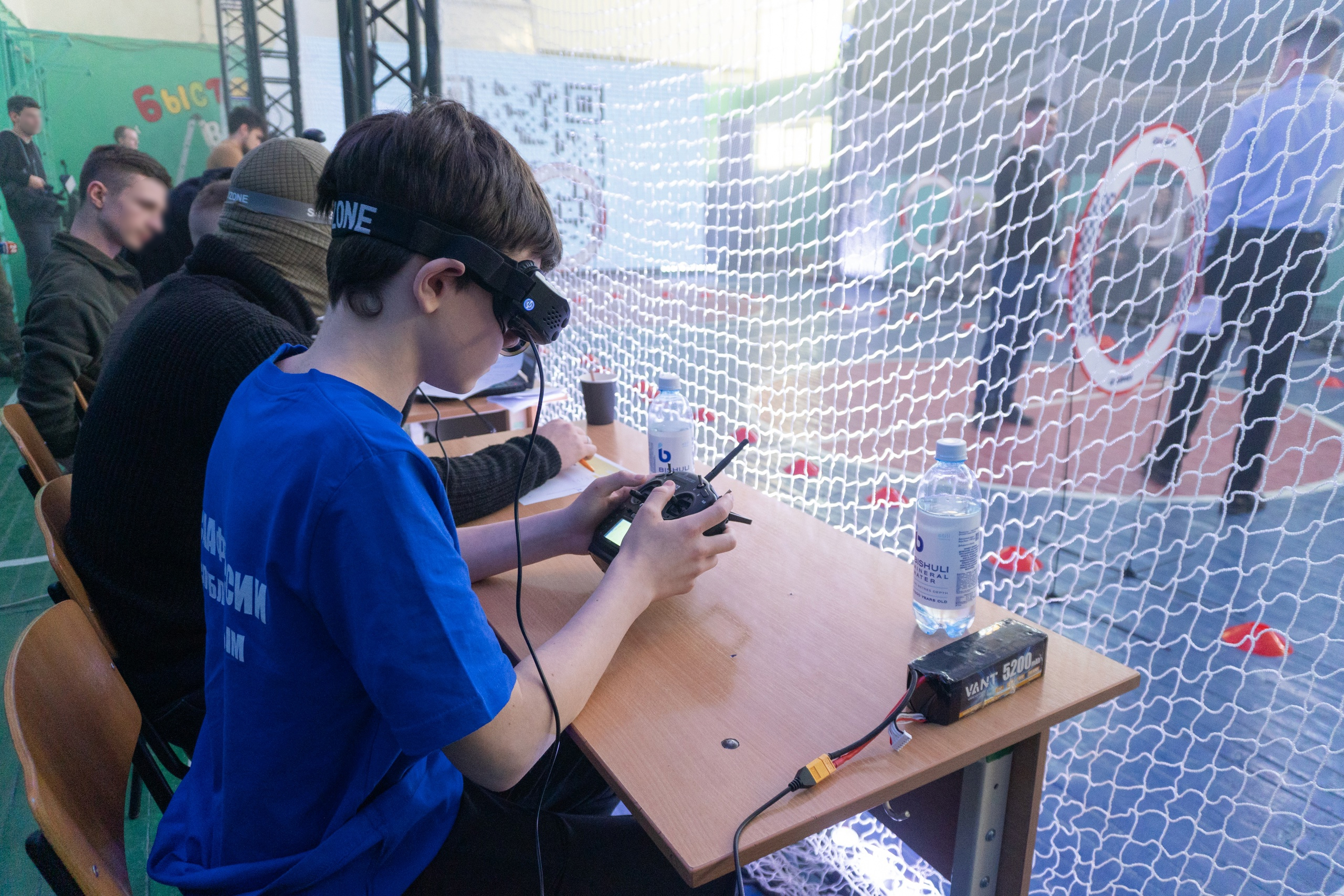

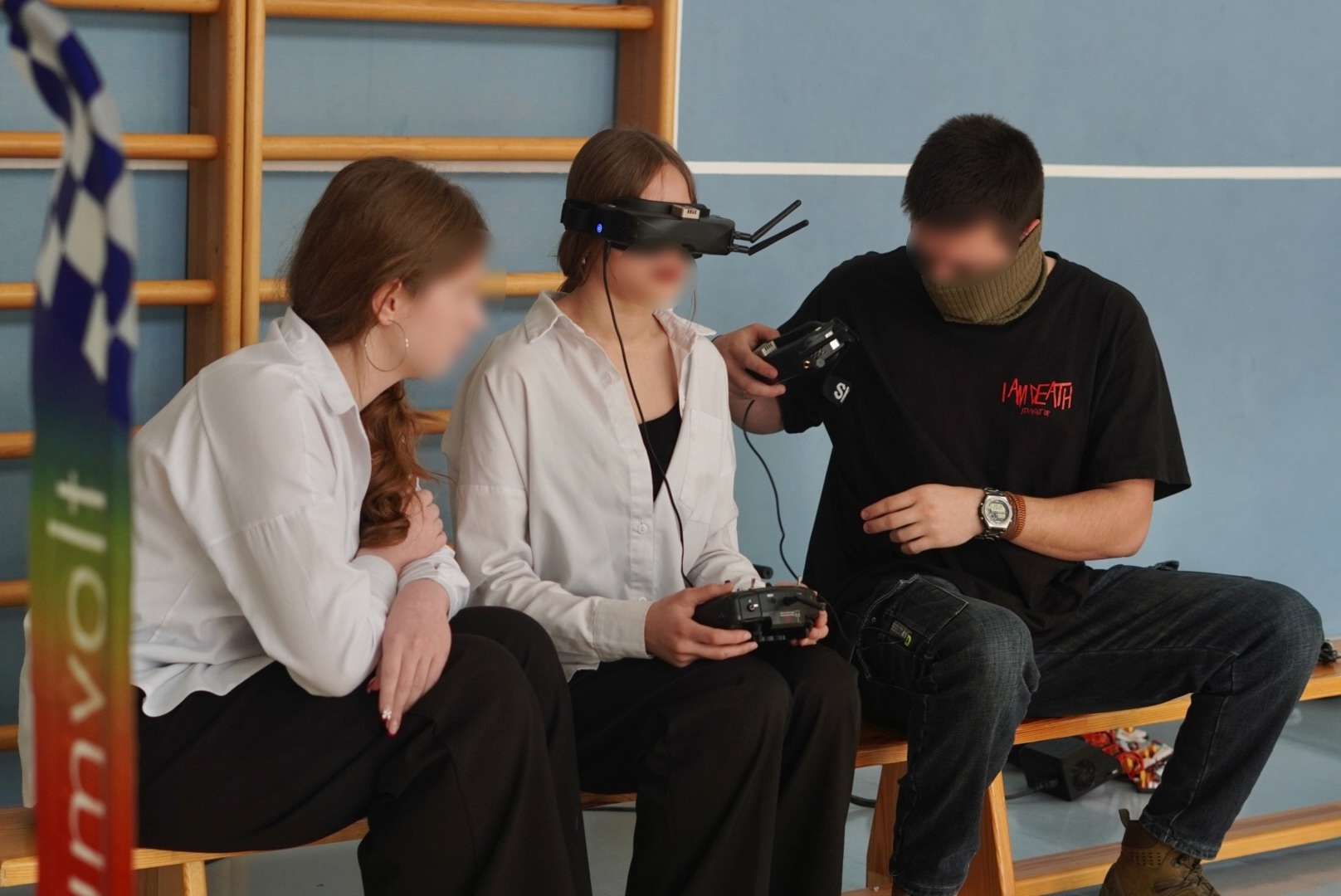

As of March 2025, this workshop is being held for the fifth time, indicating its systematic nature. As Popov reported, instructors from the Crimean branch of DOSAAF plan to conduct such workshops for 192 pupils from eight schools in the TOT of the Autonomous Republic of Crimea and complete the training of all the children by the end of May. The final competition will be timed to coincide with celebratory events related to the “Victory in the Great Patriotic War”, which is part of Russian propaganda justifying the current aggression against Ukraine.
Children who successfully complete the training receive a certificate for completing the main professional training programme in the field of “Specialist in the operation of unmanned aerial systems with a maximum take-off weight of up to 30 kg”. In other words, this is not just a game, but preparation for children to potentially acquire a military specialisation.
Andrey Popov personally participates in such events, speaking to the children and emphasising the prospects of unmanned aviation development.
When discussing the militarisation, indoctrination, and erasure of Ukrainian identity among children and young people in the TOT, it’s important to remember that these actions are carried out by specific individuals. These include those who knowingly collaborate with the aggressor state (local residents) as well as those who have moved from Russia to the TOT. They work every day to ensure that Ukrainian children forget their culture, history, and language, and are raised as obedient soldiers, ready to fight against their own country.
One such individual is Andrey Aleksandrovich Popov, who, following the occupation of Crimea, became a central figure in the militarisation of Crimean youth. From establishing local “self-defence” units to implementing large-scale educational and military-patriotic programmes, his work, along with that of the Crimean branch of DOSAAF, is focused on shaping a generation loyal to the Russian army and ideology. DOSAAF in the TOT of the Autonomous Republic of Crimea plays a pivotal role in this process: through it, military training is organised, army values are promoted, and children and young people are taught to regard war as part of their duty to Russia, preparing them for service in the Russian Armed Forces. It is through such structures and their leaders that the occupying control is reinforced, turning Crimea into a region where the younger generation grows up in an environment where Ukraine is perceived as an enemy state.
Individuals like Popov are directly responsible for the erasure of Ukrainian identity among children and must be held accountable for this.
This article was prepared with the financial support of the Czech organisation People in Need, as part of the SOS Ukraine initiative. The contents of the publication do not necessarily reflect their position.

